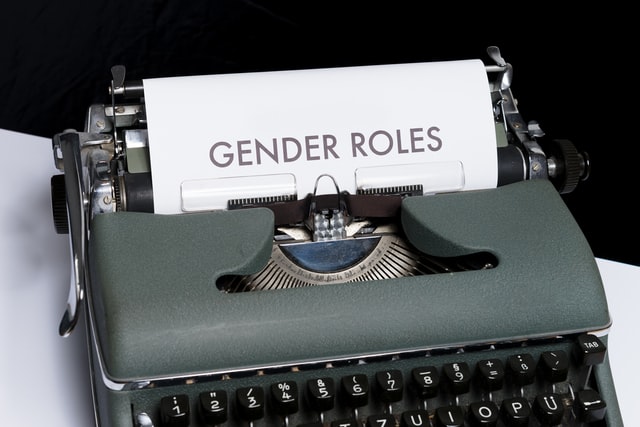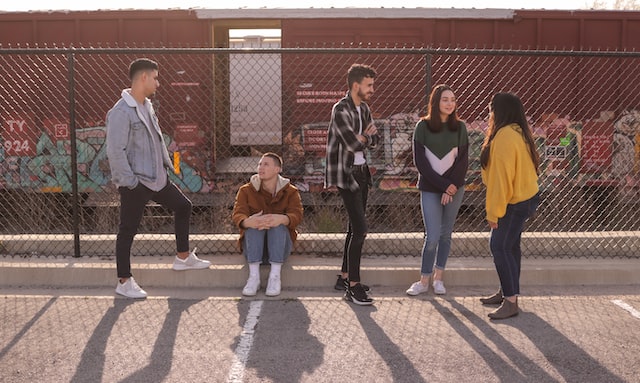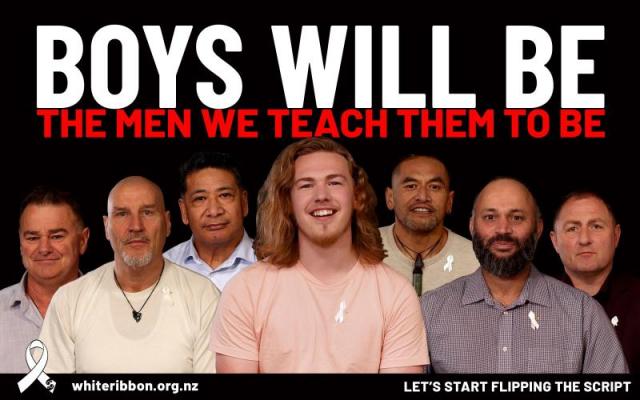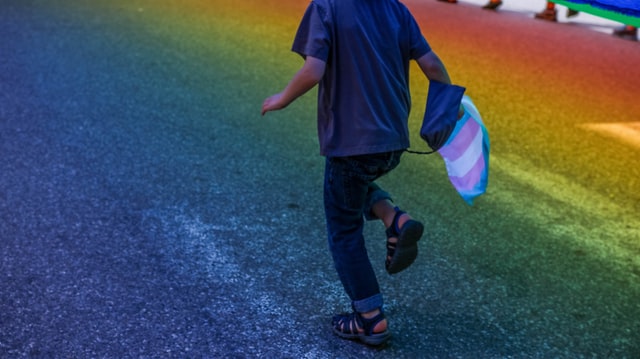4th Gender Attitudes Survey shows more work needed
Thu 19 Oct 2023
The 4th Gender Attitudes Survey shows that beliefs in rape myths and attitudes that condone violence and rigid stereotypes continue to persist.

4th Gender Attitudes Survey
Gender Equal NZ, led by the National Council of Women of New Zealand – Te Kaunihera Wāhine o Aotearoa, published findings from the 4th Gender Attitudes Survey. The survey asks questions of the general public in Aotearoa New Zealand about their attitudes and beliefs, every 2 years.
While more people thought that gender equality had ‘for the most part been achieved’ (48% in 2023 compared to 40% in 2021 and 42% in 2019), the 4th survey also shows that rape myths and beliefs that condone violence and rigid stereotypes continue to persist.
For example:
- 30% of all respondents agreed that "Rape happens when a man's sex drive is out of control," compared to 27% in 2021 and 25% in 2019
- 33% of all respondents agreed that "False rape accusations are common," compared to 29% in 2021 and 34% in 2019
- 16% of all respondents agreed that "If someone is raped when they’re drunk, they’re at least partly responsible for what happens," compared to 16% in 2021 and 14% in 2019
- 11% of all respondents agreed that "You can’t really call it rape if someone doesn't physically fight back," compared to 10% in 2021 and 8% in 2019
- 13% of all respondents agreed that "hitting out is an understandable response for a man when his wife or girlfriend tries to end a relationship," compared to 17% in 2021 and 10% in 2019
- 25% of all respondents agreed that "A man who doesn’t fight back when he’s pushed around will lose respect as a man," compared to 27% in 2021 and 22% in 2019
- 14% of all respondents agreed that "Fathers should have more say than mothers in making family decisions," compared to 16% in 2021 and 11% in 2019.
Find more information about rape myths, see Victims Information on rape myths, a video and myths and facts from NZ Police, or search our library.
The survey included new questions about online harassment with 74% of all respondents agreeing that online harassment is a serious problem in Aotearoa New Zealand. However, fewer people agreed that "women are more exposed to online harassment than men" (63% of female respondents and 57% of male respondents). Multiple UN reports have highlighted growing online violence and harassment against women and girls.
There were some positive trends with a slight increase in people who agreed that gender equality is a fundamental right (81% in 2023 compared to 79% in 2021, 79% in 2019). In addition, more people agreed that lessons about healthy relationships, including consent should be taught to all year groups including younger age groups. For example, 23% of respondents agree that lessons about healthy relationships, including consent should start with children in Years 0-6 compared to 13% in 2019.
While there was also an increase in people agreeing that gender diversity should be taught in schools/kura, the increase was mostly focused on older age groups. In addition, 21% agreed that no such information on gender diversity should be included in any years compared to 11% of respondents in 2019. This is despite the survey also finding there have been significant increases in acceptance of transgender men and women. For example, 74% agreed they would be comfortable with a transgender man being part of their immediate family compared to 65% in 2019 and 75% agreed they would be comfortable with a transgender woman being part of their immediate family compared to 63% in 2019. The level of acceptance of gay and bisexual men and lesbian and bisexual women has not shifted significantly, with 76% of all respondents agreeing they would be comfortable with a gay or bisexual man being part of their immediate family and 81% with a lesbian or bisexual woman being part of their immediate family. The Disinformation Project highlighted that harm and hate towards transgender and non-binary people in Aotearoa has increased this year, in their report Transgressive transitions; Transphobia, community building, and community bridging within Aotearoa New Zealand’s disinformation ecologies March-April 2023.
For the full results from the survey see the downloadable 2023 Gender Attitudes Survey report or the interactive Gender Attitudes Survey e-reporting tool. A recording of the event to launch the survey findings is also available.
National Council of Women New Zealand President Suzanne Manning said "This latest survey confirms that there is still a significant way to go before we can genuinely say that gender equality in Aotearoa New Zealand has been achieved."
The survey is designed to be a nationally representative sample of the New Zealand adult population. Gender Equal NZ works with Research NZ to conduct the surveys.
Related news
Update: UN Women has published a new discussion paper, Social norms, gender and development: A review of research and practice (2023). It presents findings from a scoping review of studies and evaluations of programmatic interventions to shift social norms, as well as insights from a broader body of evidence tracing how social change happens.
The Rainbow Violence Prevention Network with help from Rape Prevention Education has published Rainbow Best Practice Guidelines (2023). The guidelines are designed for frontline practitioners as a resource to upskill in working with Rainbow communities. Both the full guidelines and a summary are available.
Rainbow Health Australia published Pride in Prevention Partnership Guide: A guide for partnerships to support primary prevention of family violence experienced by LGBTIQ communities (2022). It has information for LGBTIQ practitioners and organisations and family violence prevention practitioners and organisations focused on primary prevention of family violence experienced by LGBTIQ communities. Also see their previous resource, Pride in Prevention: a guide to primary prevention of family violence experienced by LGBTIQ communities (2020) which outlines a new conceptual model for understanding LGBTIQ experiences of family violence, along with priority actions for primary prevention.
The United Nations Independent Expert on protection against violence and discrimination based on sexual orientation and gender identity, Victor Madrigal-Borloz, published the report Protection against violence and discrimination based on sexual orientation and gender identity (A/78/227) in July 2023. The report looks at the impact of colonialism in violence and discrimination based on SOGI (sexual orientation and gender identity) and makes recommendations for the United Nations system and Member States. Also see the short summary of the report.
UN Women, United Nations Population Fund (UNFPA), United Nations Development Programme (UNDP) and the World Health Organization (WHO) have joined up to launch the RESPECT Women website. It is a new online platform with information to support concrete actions in policies and programmes to prevent and respond to violence against women and girls. It is based on the RESPECT framework which is based on human rights and gender equality principles. The Framework provides step-by-step guidance on how to design, implement, monitor and evaluate interventions and programmes on preventing violence against women. One of the 7 evidence-based strategies from the framework is focused on transformed attitudes, beliefs and norms.
UN Women published a new policy brief Doing violence prevention well: Matching aspirations with funding timeframes (2023). The brief outlines types of violence prevention activities that are appropriate based on the funding time frame and includes global examples. It identifies prevention activities that would be appropriate for funding that cover 1 year, 2 years, 3 to 5 years and above. It also lists funding and prevention practices that are not effective and should be avoided. The brief highlights that an effective community mobilisation approach to prevention requires 4 to 5 years of dedicated flexible funding. It goes on to say that "Short time frames and the political pressures to show quantifiable results are two of the biggest challenges currently facing the VAW field."
Australia-based Safe+Equal has created a new resource to support action against the drivers of family and gender-based violence, called Driving Change (2023). Based on the drivers of violence, the resource focuses practical and positive actions that everyone can take to end family and gender-based violence. It lists examples of what change can look like to address 4 key drivers of violence.
Related media
Preventing sexual violence is critical, no matter who's in government, The Press, 08.10.2023
Silence not a political option when it comes to family violence, The Press, 11.09.2023 (also see related comments from the National Network of Family Violence Services)
Image: Lukas on Pexels










